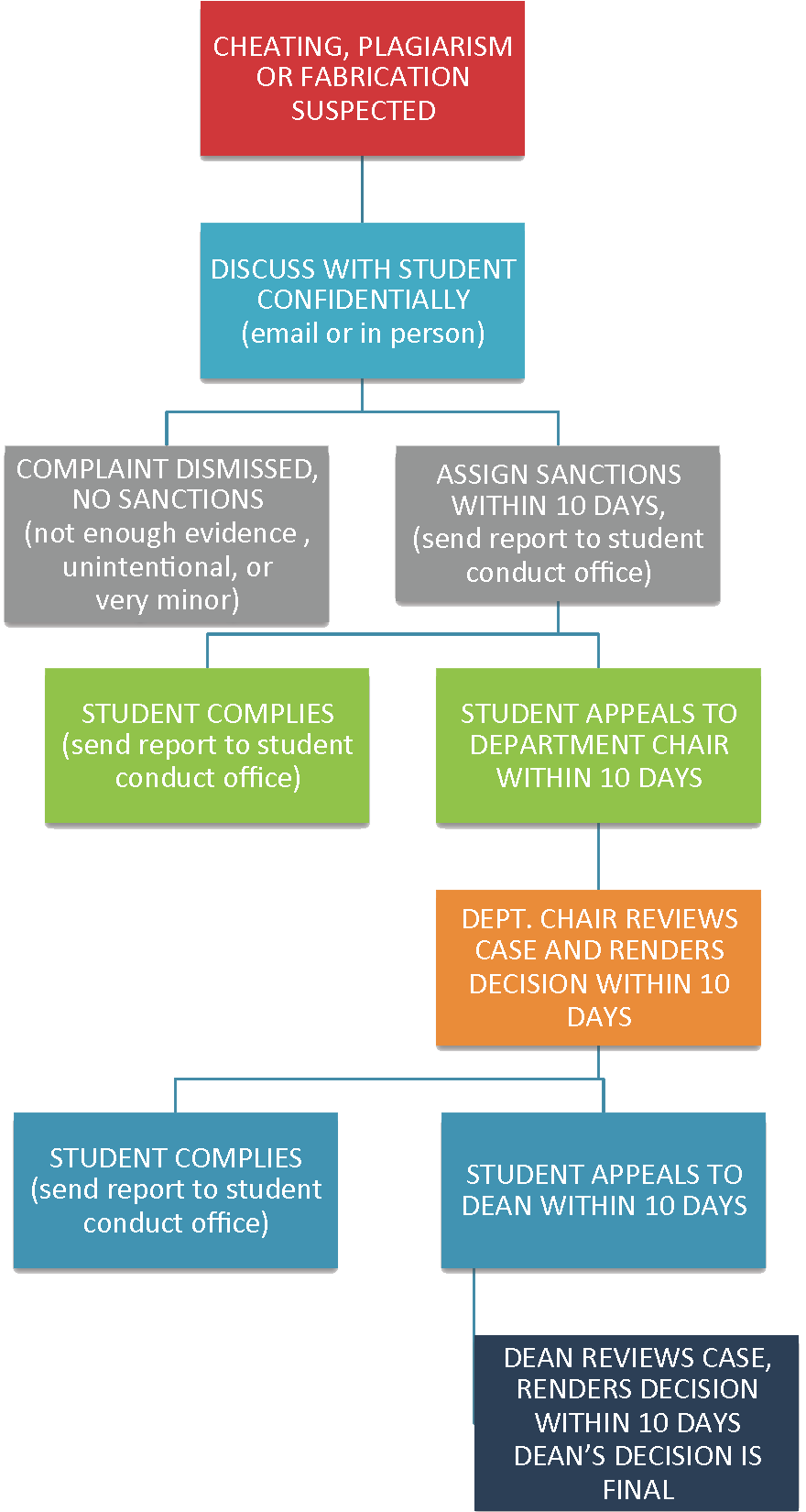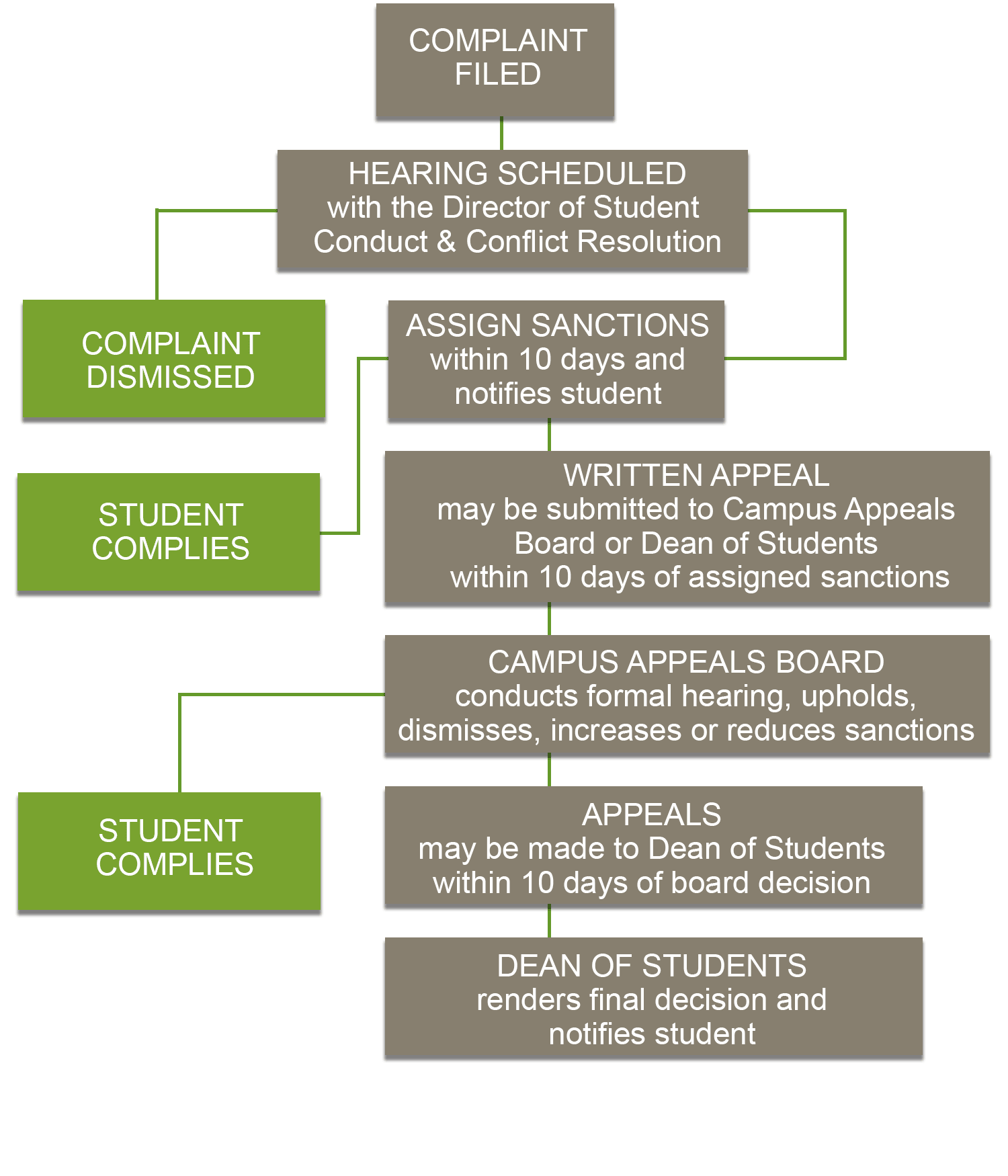All UVU students are expected to conduct themselves in an appropriate manner acceptable at an institution of higher learning. All students are expected to obey the law, to perform contracted obligations, to maintain absolute integrity and high standards of individual honesty in academic work, and to observe a high standard of conduct for the academic environment.
The Student Rights and Responsibilities Code, or Code of Conduct, outlines for students what they can expect from the University and what the University expects of them.
Students should review the their Rights and Responsibilities. The Code of Conduct also outlines the process for academic appeals, and appeals related to misconduct and sanctions.

How is AI changing college education?
Cheating is the act of using or attempting to use or providing others with unauthorized information, materials or study aids in academic work. Cheating includes, but is not limited to, passing examination answers to or taking examinations for someone else, or preparing or copying other's academic work.
Plagiarism is the act of appropriating another person's or group's ideas or work (written, computerized, artistic, etc.) or portions thereof and passing them off as the product of one's own work in any academic exercise or activity.
Fabrication is the use of invented or falsified information, research or other findings.
Example of Academic Misconduct
What is Plagiarism?
UNINTENTIONAL PLAGIARISM IS
STILL PLAGIARISM
If you are found responsible for Academic Misconduct

We understand that people make mistakes in college, but sometimes those mistakes violate the policies we have on campus and result in sanctions. Sanctions and other forms of conduct resolution seek to first, help students repair harm they may have caused, second, make sure that mistake isn't made again, and third, reorient students' focus back on their academics. You should expect that any action taken as a result of misconduct serves an educational purpose.
If you are found responsible for a violation of the Code of Conduct, Student Conduct or your faculty may impose resolutions or sanctions relevant to the misconduct. In more serious cases, where the safety or wellbeing of the campus community, students may be asked to leave campus immediately until a final solution is reached.
A complete list of sanctions for both academic misconduct and general misconduct can be found in the Sanctions section of the Student Code of Conduct.
Student Code of ConductStudents are expected to proactively work with Student Rights & Accountability for situations of general misconduct (fighting, stealing, threats, disruptions) or the academic department for academic misconduct (cheating, plagiarism), in order to resolve the situation.
The University’s resolution process is not a legal process. A student may be found in violation of the Code of Conduct using the preponderance of evidence standard, or whether it is more likely than not that misconduct occurred.
You have the right to be heard if an accusation is brought against you. Your side of the story in your own words is important to the resolution process. You may be asked to put your statement in writing.
APPEALS
If you are found responsible for a violation of the Code of Conduct, you may appeal disciplinary action in writing within ten (10) school days of the date you were notified of the outcome.
Appeals are typically considered on the following bases:
Summary of appeals process for Academic Misconduct
Summary of appeals process for General Misconduct
See the Appeals and Due Process section of the Code of Conduct for more detailed information.
Contact the Ombudsfor assistance navigating your due process rights.

Students' disciplinary records are retained by the Office of Student Conduct in order to maintain a single institutional standard for the retention of records of Code of Conduct actions.
Removing a Disciplinary Record
While a student’s disciplinary records are not reflected on their UVU transcript, they most often become an issue if the student plans to attend graduate school or law school, or apply for federal employment. Very often, these agencies conduct educational background checks. If a student has graduated, or if their disciplinary records are at least 5 years old, they may apply to the director of Student Conduct to have their records removed. Application for disciplinary record removal does not guarantee removal. Student Conduct takes the following factors into consideration:
Records are kept in order to hold students accountable for remedying violations of the Code of Conduct, and to hold administrators accountable for their disciplinary decisions. When a student’s record shows multiple infractions their case may be reviewed, and further sanctions may be imposed if appropriate.
For Drug, Alcohol and Tobacco laws and prevention visit the Wellness Programs Website.
Reporting Drug and Alcohol Violations
In case of emergency call 911 or Campus Police directly 801-863-5555. Violations of the Drug and Alcohol Policy should be reported to Student Conduct 801-863-8665.
Utah Valley University is a drug-free campus and has a “zero tolerance” alcohol and drug policy. UVU has developed an alcohol and tobacco and other drug policy not only in response to the federal drug-free legislation, but also to encourage and sustain an academic environment that promotes the health, safety, and welfare of all members of its community.
Alcoholic beverages, unlawful drugs, and other illegal substances shall not be consumed, used, carried, sold, or unlawfully manufactured on any property or in any building owned, leased, or rented by UVU, or at any activity sponsored by the College.
Sanctions for Alcohol or Drug Policy Violations
Selected listing of student related policies, regulations, and codes
(801) 863-8876 Providing services for UVU students pertaining to medical care, physical and emotional wellbeing, and suicide prevention.
Learn more